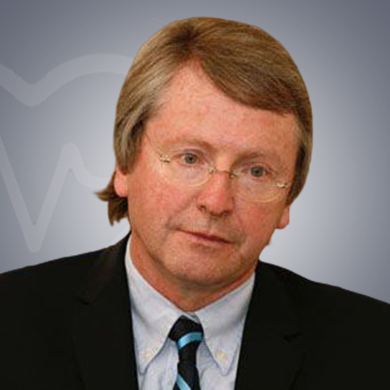
of experience
Speaks: English
A medical oncologist is trained to treat different types of cancer using chemotherapy and other medications, such as immunotherapy and targeted therapy. The medical oncologist designs a treatment plan after consultation with doctors from other disciplines. The doctor completely evaluates the nature of cancer and then treats cancer through various methods like chemotherapy, hormone therapy, and targeted therapy. Listed below are some of the conditions that Dr. Angus Dalgleish treats:
The earlier doctors detect cancer, the sooner the treatment can start. So it is vital to know the common types of cancer and some of their warning signs. There are more than 90 types of cancer, and some of them are more common than others. This depends on your gender, age, and racial or ethnic group. If you have any of the below-listed symptoms, your primary care doctor may refer you to a medical oncologist:
Dr Angus Dalgleish works from 11 am to 5 pm (Monday to Saturday). The doctor is not available on Sunday. Call the doctor or his attendant to confirm his/her availability because the doctor may not be available due to some personal reasons or any emergencies.
The below-listed popular procedures that Dr. Angus Dalgleish performs are:
In chemotherapy, a medical oncologist uses chemicals to kill cancer cells in the body. Chemotherapy might be given with an aim to treat cancer or to prolong life or reduce symptoms. Hormone therapy is a procedure that uses medicines to stop or lower the amount of hormones used by cancer cells to grow. Hormone therapy is used for the treatment of breast cancer, prostate cancer, ovarian cancer, and womb cancer.

Share Your Experience about Dr. Angus Dalgleish

Medical Oncologist is a specialist who treats cancer through chemotherapy and other medications such as targeted therapy, and immunotherapy. He is considered the primary health care person for cancer patients. They closely work with the other medical professionals for the best results. A medical oncologist also continues with follow-ups and complete checkups of cancer patients after treatment. Medical oncologists coordinate cancer treatment plans and monitor people for possible side effects. In cases of incurable cancer, a medical oncologist suggests palliative or hospice care for patients. They mainly help patients manage cancer.
Medical oncologists perform the below-given tests to confirm cancer:
Biopsy is the most preferred test to confirm cancer. It is the removal of a small amount of tissue from specific parts of your body followed by examination under a microscope to find the presence of cancer or any other abnormalities.
An individual will see a medical oncologist when the primary care doctor suspects that the person has cancer. The primary doctor may use various diagnostic tests to diagnose a patient. If the tests shows signs of cancer, the primary care physician refers the patient to an oncologist. You need to see a medical oncologist if you experience the symptoms listed below: